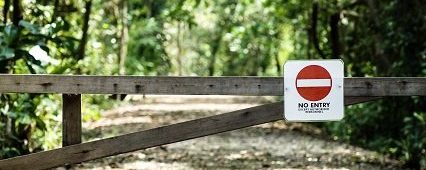
Adverse possession is a principle of property law that applies to both residential and commercial property. It is the legal basis on which a person, who is not the legal owner of land, can become the legal owner by possessing the land for a specified period of time. Such a person is often referred to as a “squatter”, but in this blog is referred to as an “occupier”. The process is different for registered land and unregistered land. This blog deals with registered land as it is more common.
In order to claim adverse possession of the land, the occupier needs to be able to demonstrate the following:
- Actual possession of the land, to the exclusion of all others.
- An intention to possess the land (not simply an intention to own).
- Possession of the land without the owner’s consent.
If the above circumstances have existed for at least ten years, the occupier can make an application to the Land Registry for registration as proprietor of the land. The Land Registry will serve notice of the application on the registered proprietor of the land and, if no objection is made, the occupier will be become the new registered proprietor.
If the current registered proprietor of the land does object to the occupier’s application for adverse possession, then the application will be rejected unless one of the following three exceptions apply:
- It would be unconscionable not to register the occupier as the registered proprietor of the land.
- The occupier is entitled to be registered as the registered proprietor of the land for some other reason.
- The land abuts the occupier’s own property and the exact demarcation of the boundary between the two plots of land is unclear. The land must also have been registered at the Land Registry for more than one year.
If the occupier’s application is rejected by the Land Registry but s/he remains in adverse possession for a further two years, then s/he can make a further application to the Land Registry and (if the application and the facts surrounding it are in order), the occupier will become the new registered proprietor of the land.
If you are considering making an application for adverse possession, or alternatively have been served with a Land Registry notice for adverse possession, please speak to one of our specialist property lawyers about what options are available to you and how best to achieve a suitable outcome.
{{cta(‘b46eb772-fc11-4d43-99cd-58185e68c9ff’)}}
Share this post: